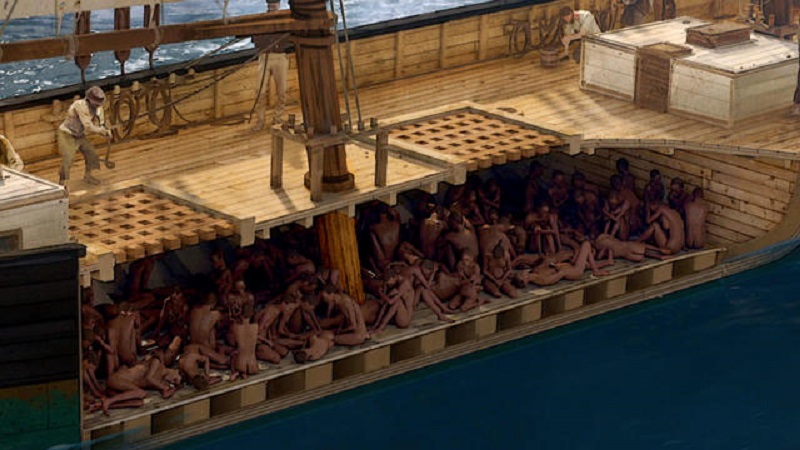The story of Clotilda is one of the most intriguing and emotional sagas in American history. Clotilda was a slave ship that brought over 100 Africans to the United States illegally in 1860, long after the transatlantic slave trade had been abolished.
The ship was thought to have been lost to history until recently when researchers discovered it at the bottom of the Mobile River in Alabama.
This discovery has brought renewed attention to the story of Clotilda and her descendants, and has sparked a remarkable reckoning among the people of Africatown.
The story of Clotilda began in 1859, when a wealthy plantation owner from Mobile, Alabama named Timothy Meaher made a bet that he could import slaves into the United States in spite of the federal ban on the transatlantic slave trade.
He commissioned a ship, the Clotilda, to go to West Africa and bring back enslaved people. The ship landed in Mobile Bay in 1860, and its passengers were smuggled into the country and sold into slavery. The Clotilda was then burned and scuttled to cover up the illegal activity.
The story of Clotilda was largely forgotten until recently when it was rediscovered by researchers.
The True Story of How Clotilda Was Found
The discovery of Clotilda was a momentous occasion for researchers and historians alike. The ship was found in May 2019 by Ben Raines, an investigative reporter for AL.com, and a team of divers.
Raines had been searching for the ship for years and finally found it in the Mobile River Delta. The ship was identified by its distinctive construction and artifacts found on board.
The discovery of Clotilda was an extraordinary achievement that shed new light on a dark period in American history.
The Legacy of Clotilda
The Clotilda story has had a lasting impact on the descendants of those brought over on the ship. Africatown, the community founded by Clotilda survivors in Alabama, has struggled for years with poverty and neglect.
However, the discovery of Clotilda has brought renewed attention to the community and its history.
The descendants of Clotilda survivors have been speaking out about their experiences and their fight for recognition and reparations.
The legacy of Clotilda has become a rallying cry for many who are fighting for social justice and equality.
The Extraordinary Reckoning
The discovery of Clotilda has also sparked an extraordinary reckoning in Africatown and the wider community. The people of Africatown have been calling for reparations for years, but their voices have largely gone unheard.
However, the discovery of Clotilda has brought new attention to their cause. In 2019, the Alabama state legislature passed a resolution apologizing for the state’s role in the slave trade and recognizing the significance of the Clotilda discovery. This was a major milestone in the fight for recognition and reparations for the descendants of Clotilda survivors.
The Descendants of Clotilda
The descendants of Clotilda survivors have a unique perspective on American history. They are the living legacy of a time when slavery was legal and accepted in the United States.
Many have struggled with poverty and discrimination, but they have also maintained a strong sense of community and resilience.
The discovery of Clotilda has brought renewed attention to their story, and many are now speaking out about their experiences and their fight for recognition and reparations.
The Importance of Remembering Clotilda
The story of Clotilda is an important reminder of the horrors of slavery and the resilience of those who survived it. It is a testament to the enduring legacy
Sources:

